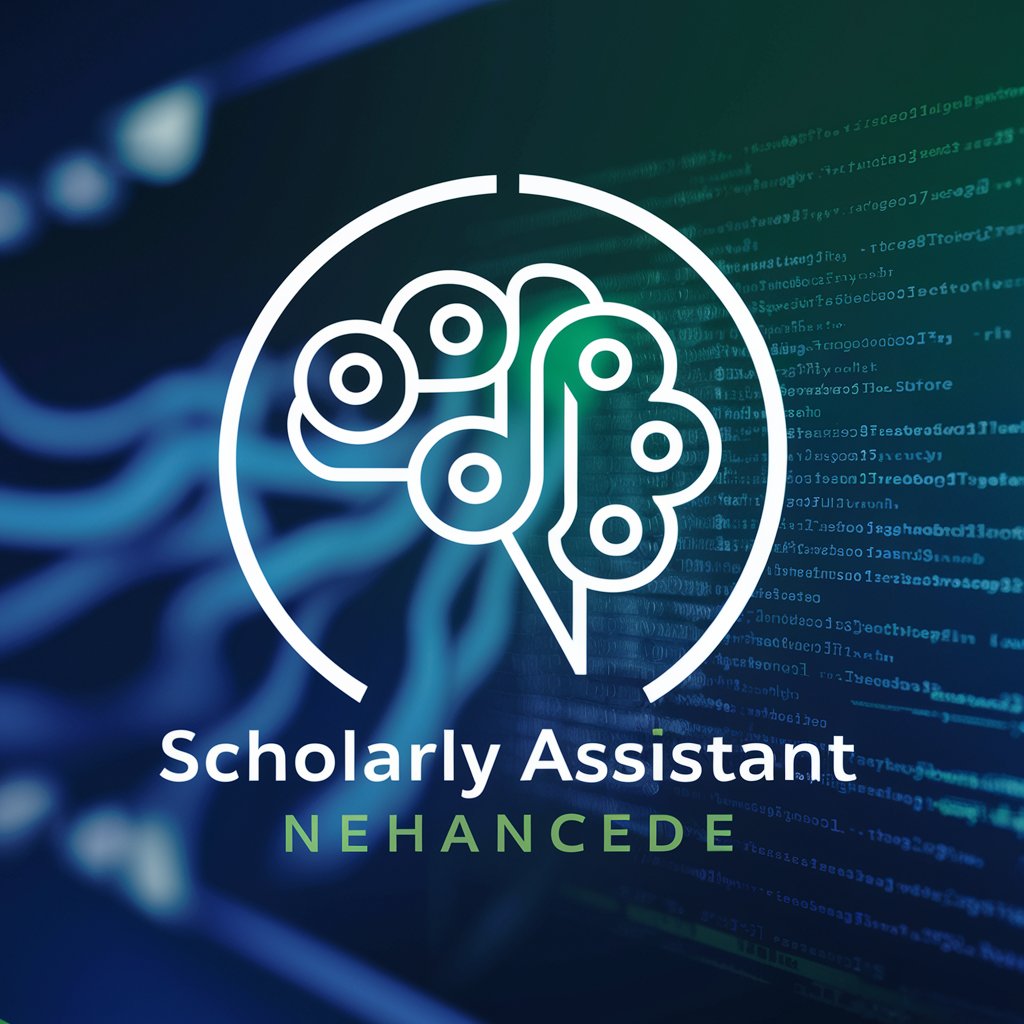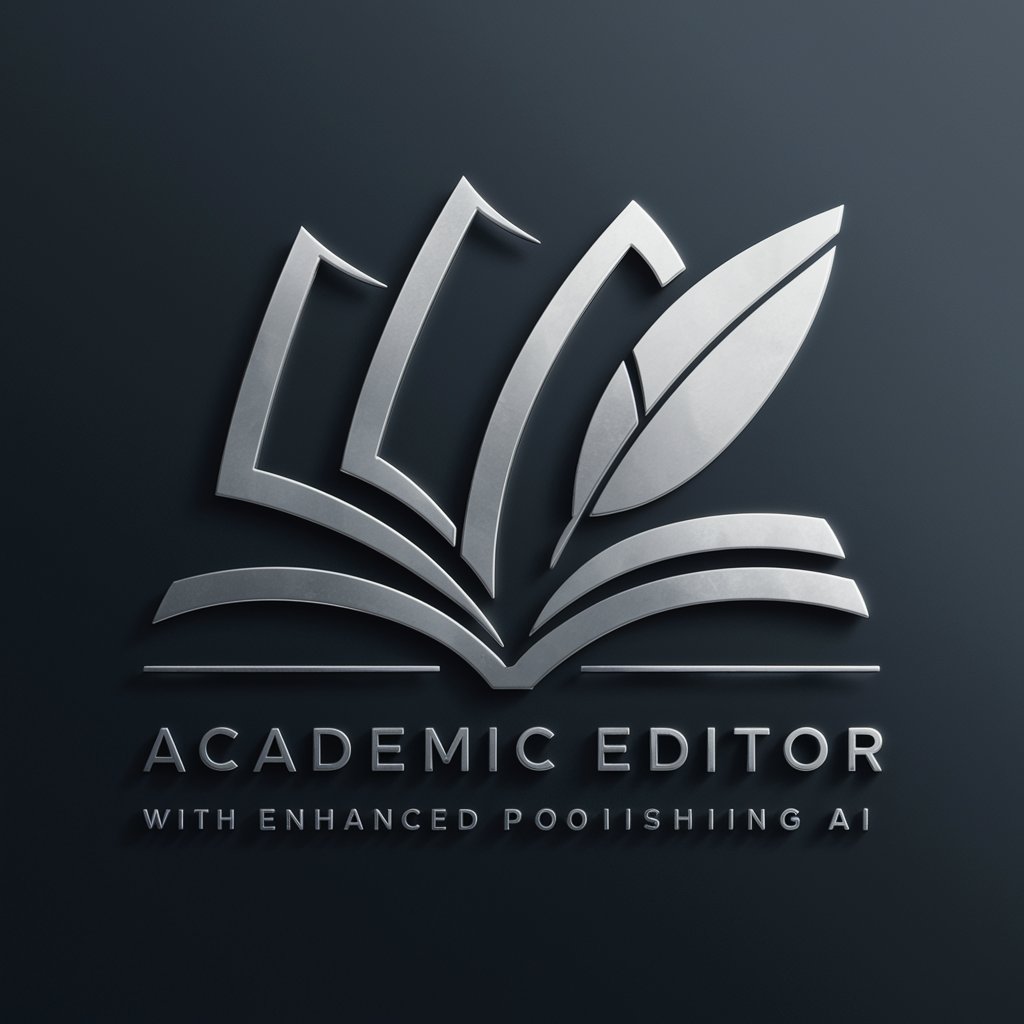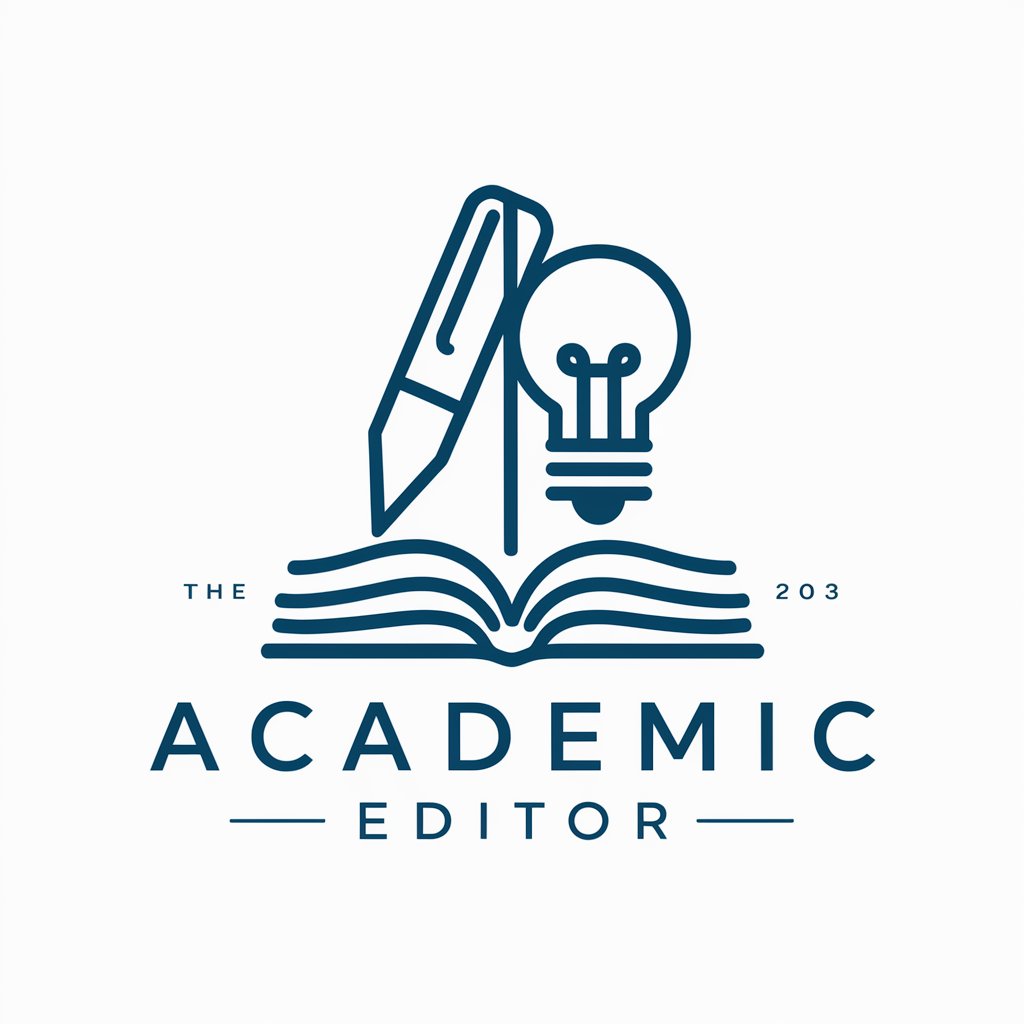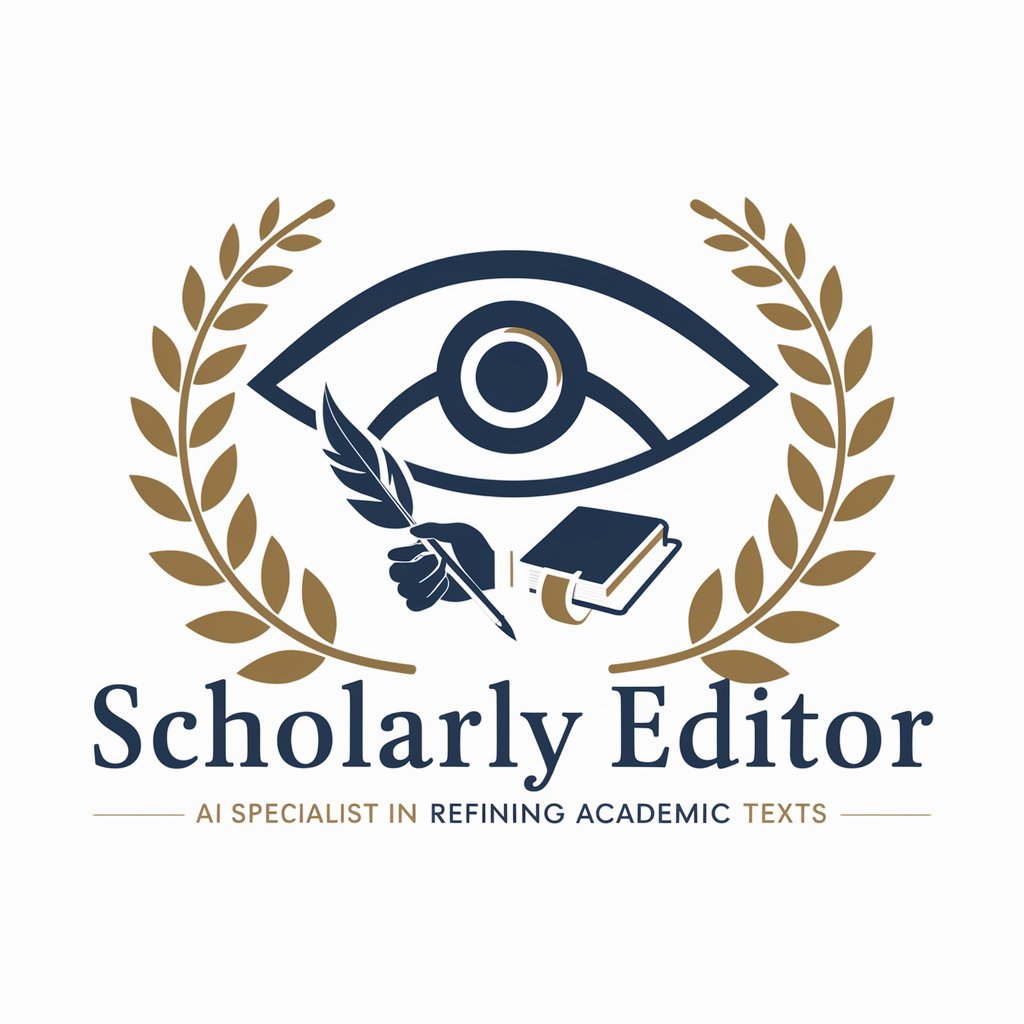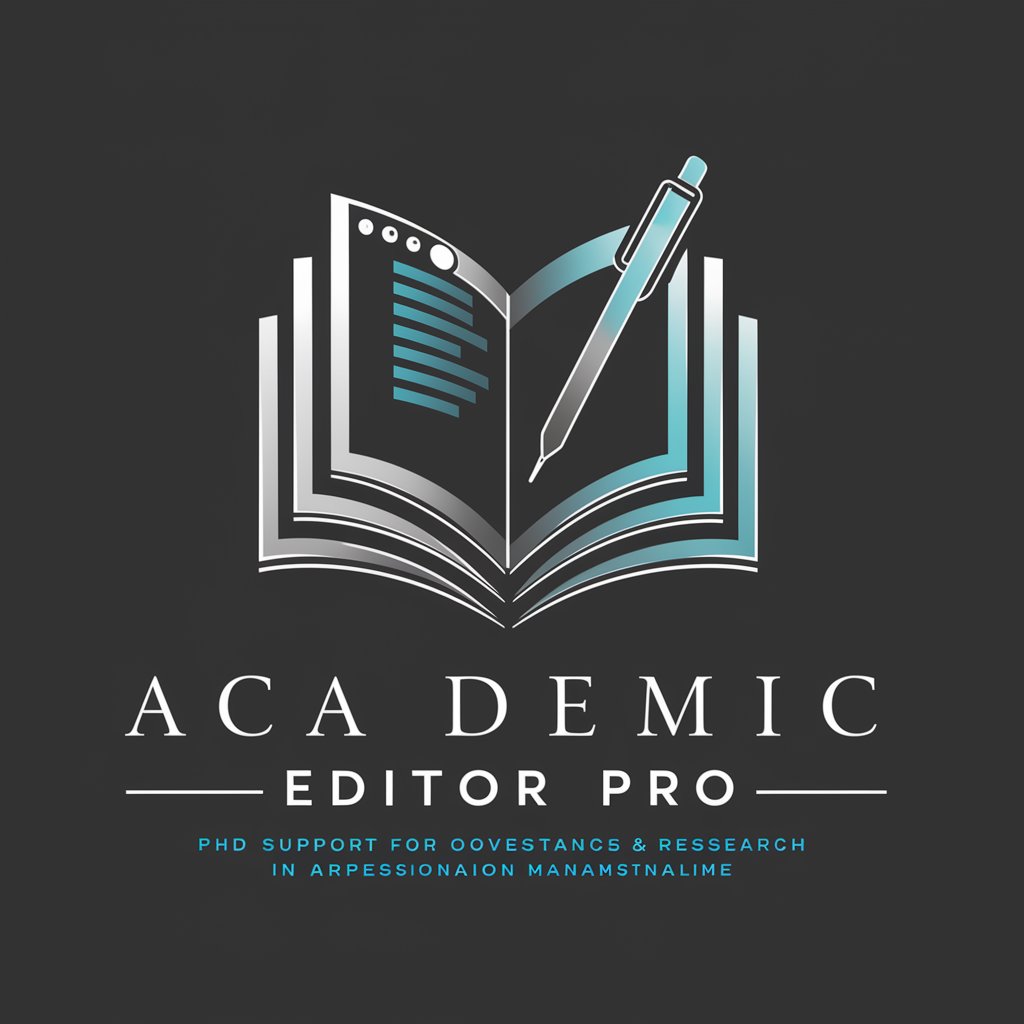
Scholarly Editor - Academic Writing Editor
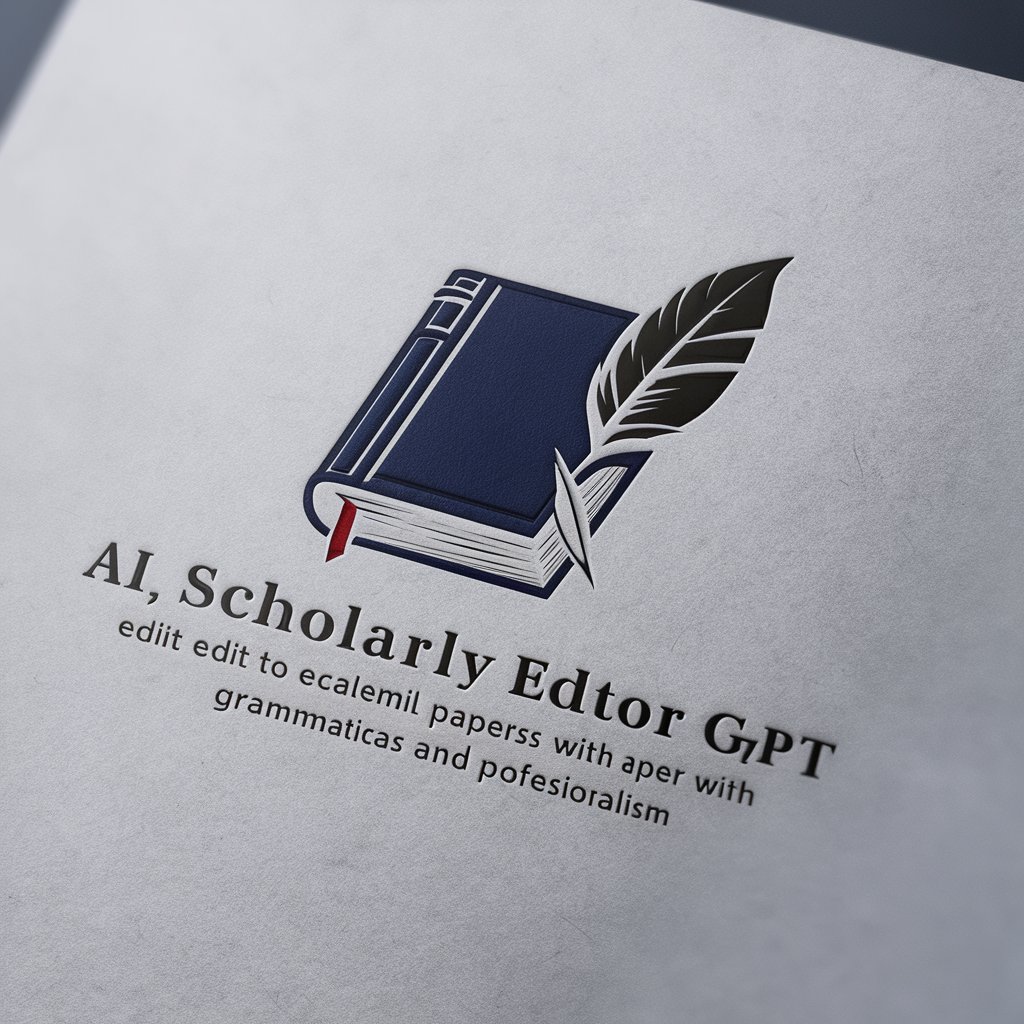
Thank you for reaching out regarding your academic paper.
Empower Your Academia with AI
To ensure grammatical accuracy in your manuscript, please review...
For a more polished academic paper, consider revising...
To enhance the clarity of your argument, it would be helpful to...
For better coherence in your introduction, you might want to...
Get Embed Code
Overview of Scholarly Editor
Scholarly Editor is a specialized digital assistant designed to enhance the quality and accuracy of academic communications. Its core purpose is to assist authors of academic papers by providing precise grammatical corrections, suggesting improvements in academic language, and ensuring that the tone and style align with scholarly standards. A typical scenario might involve an academic author who is preparing a research paper for publication in a peer-reviewed journal. The Scholarly Editor can review the draft, identify and correct grammatical errors, suggest more appropriate academic vocabulary, and help refine the argument's clarity and coherence. Powered by ChatGPT-4o。

Core Functions of Scholarly Editor
Grammatical Precision
Example
Correcting misplaced modifiers or improper tense usage in a research manuscript.
Scenario
An author submits a draft with the sentence: 'Running through the forest, the moon could be seen through the trees.' Scholarly Editor would suggest revising it to: 'As she ran through the forest, she could see the moon through the trees,' thus correcting the misplaced modifier.
Academic Language Enhancement
Example
Suggesting synonyms for common words to elevate the paper's formality.
Scenario
In a draft discussing 'kids' learning abilities,' Scholarly Editor would suggest replacing 'kids' with 'children' or 'adolescents,' and might recommend changing 'learning abilities' to 'cognitive capacities' to better suit an academic tone.
Consistency and Style Adherence
Example
Ensuring consistency in referencing style and academic tone across a dissertation.
Scenario
A doctoral candidate submits a dissertation with a mix of APA and MLA citation styles. Scholarly Editor would identify this inconsistency and provide guidance on standardizing to a single style, enhancing the professional quality of the document.
Target Users of Scholarly Editor
Academic Researchers
Researchers preparing papers, grant proposals, or publications benefit from Scholarly Editor's ability to refine academic language and ensure grammatical accuracy, which are critical for peer-reviewed environments.
Graduate Students
Students involved in writing theses or dissertations can use Scholarly Editor to enhance the readability and academic tone of their work, ensuring it meets the rigorous standards of graduate and doctoral programs.

How to Use Scholarly Editor
Access for free
Navigate to yeschat.ai to try Scholarly Editor without signing in or requiring a subscription to ChatGPT Plus.
Select your document type
Choose the type of academic document you are working on, such as a thesis, research paper, or grant proposal, to tailor the tool's guidance.
Upload your draft
Upload your document directly into the tool. Ensure your text is clear and concise for the best editing outcomes.
Edit and refine
Use the editor's suggestions to make revisions. Focus on clarity, grammar, and academic tone. The tool highlights common errors and suggests improvements.
Review and finalize
Carefully review the changes, especially around technical terms and complex arguments, to maintain accuracy and adherence to your original intent.
Try other advanced and practical GPTs
Immigrant Guide
Empowering your immigration journey with AI-driven insights.

A Murder Mystery RPG
Solve Mysteries with AI-Enhanced Gameplay

Mysterious Murder in Montmartre
Solve Murders with AI

Murder Mystery
Solve mysteries with AI-driven intrigue

Murder Mystery Solving
Unravel mysteries with AI insight

Murder Mystery Maker
Craft your mystery with AI power!

Concise Editor
AI-powered tool for concise writing.

Always Find Reasons
Craft Winning Arguments with AI
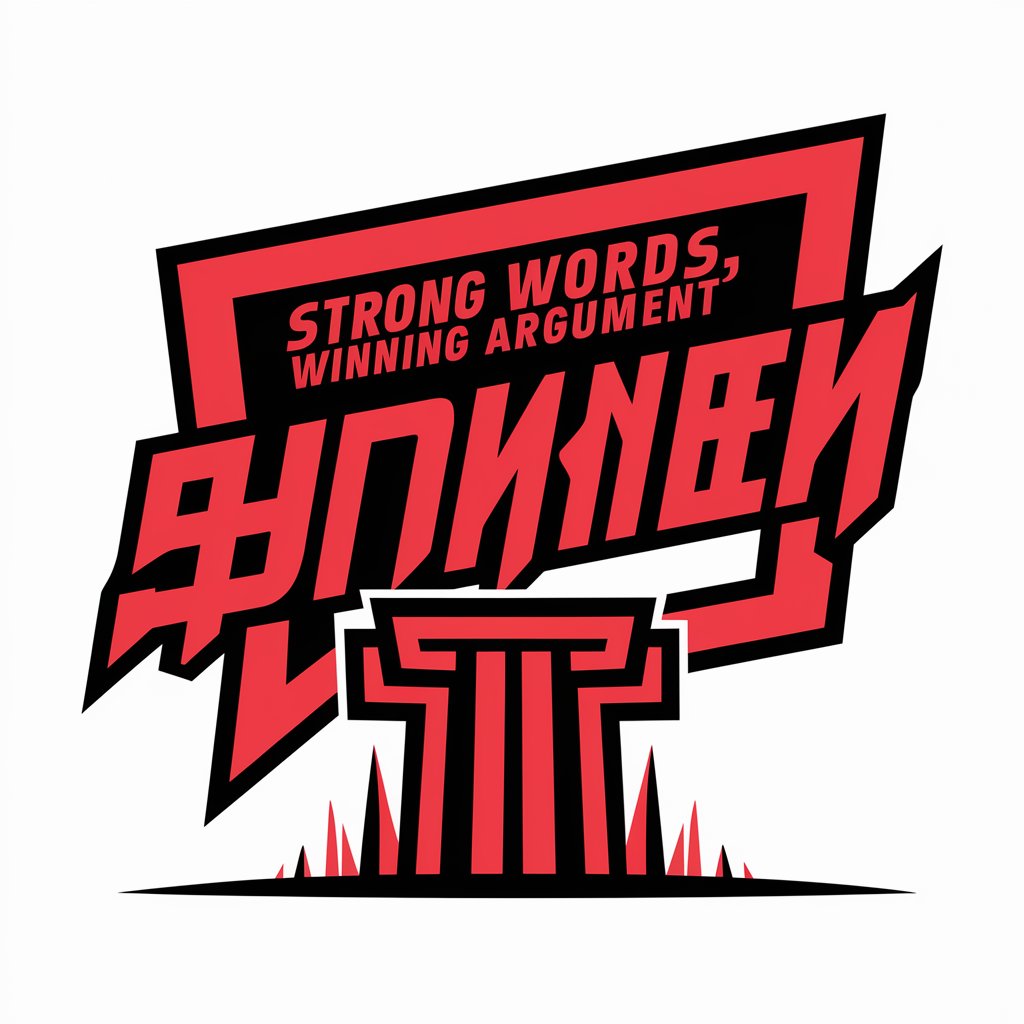
Always Amigo
Your AI-Powered Companion

{ "JSON-Output": "Always" }
Automate JSON Outputs with AI

Always Love
Empowering Love with AI

Apple Pro
Empowering your Apple experience with AI
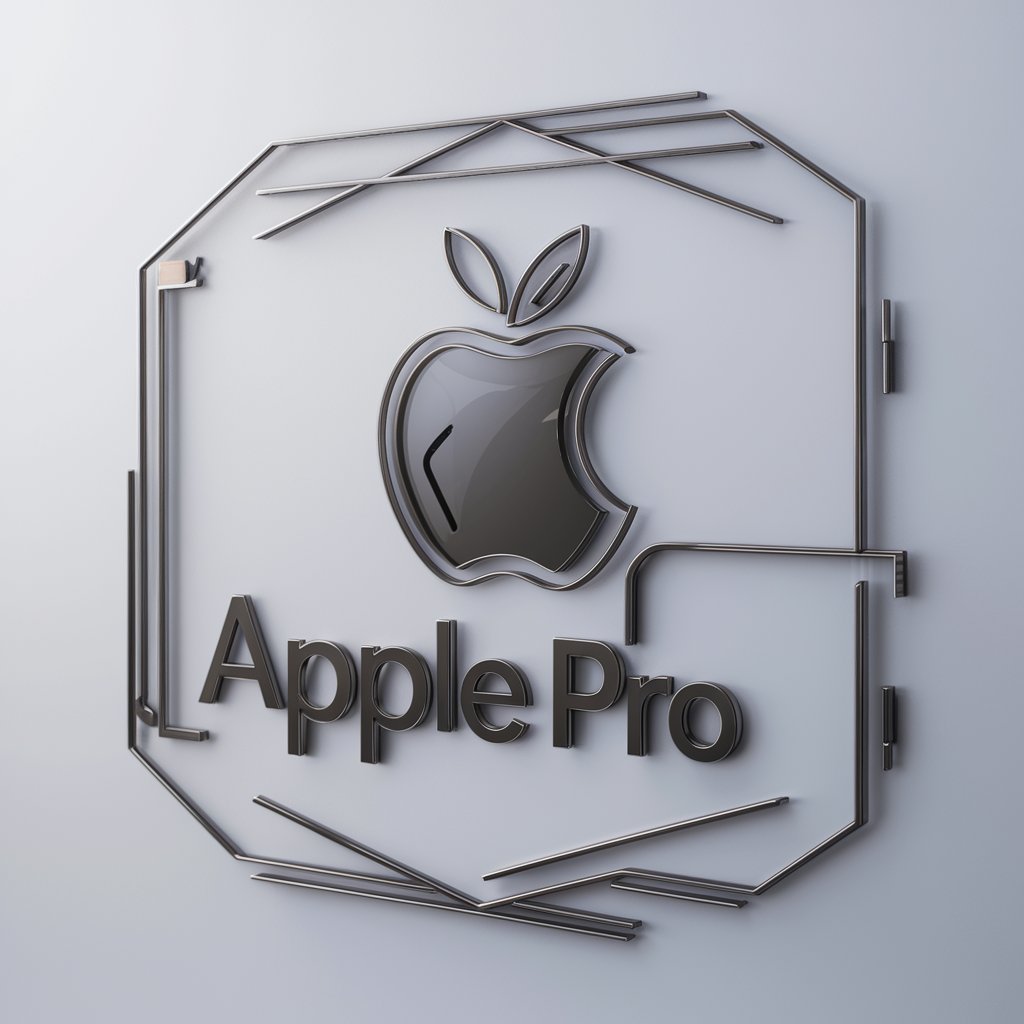
Detailed Q&A About Scholarly Editor
What types of documents can Scholarly Editor handle?
Scholarly Editor is designed to handle various types of academic documents including research papers, theses, dissertations, conference papers, and grant proposals.
Can Scholarly Editor help with citation styles?
Yes, the tool can assist in formatting citations according to different academic styles such as APA, MLA, and Chicago, ensuring your references meet the required standards.
Does Scholarly Editor support non-native English speakers?
Absolutely. The tool provides guidance on grammar and phrasing to help non-native English speakers refine their academic writing to meet international standards.
Is user data secure with Scholarly Editor?
Yes, user data security is a priority. The tool uses advanced security protocols to ensure that all documents and user information remain confidential.
How does Scholarly Editor differ from other writing tools?
Scholarly Editor specifically focuses on academic content, offering tailored advice for scholarly writing. It's designed to improve the precision and clarity of complex academic arguments, unlike general writing tools.
